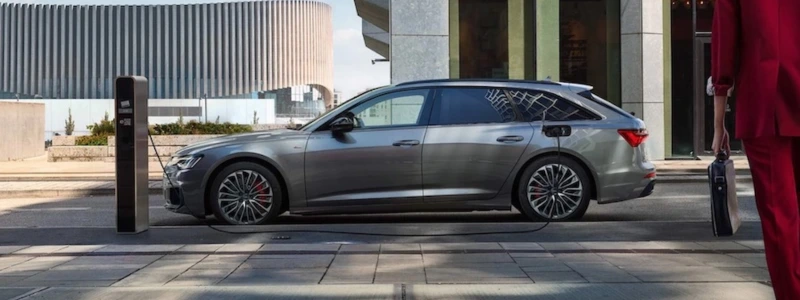Key Summary:
Hybrid cars give you the best of both worlds, a petrol/diesel engine + electric motor, meaning lower fuel use and simpler refuelling than a full EV. But for Irish drivers, they come with trade-offs: higher upfront cost, fewer grants, and sometimes less benefit on long motorway drives. If you understand both sides, you can decide whether a hybrid suits your driving habits, and finance it smartly with LM Operations.

What Is a Hybrid Car and How Does It Work in Ireland?
Summary: A hybrid car combines a petrol or diesel engine with an electric motor, switching between power sources to save fuel. In Irish stop-start traffic, hybrids perform best, while on longer motorway drives, efficiency falls.
Hybrid Technology Explained
A hybrid vehicle combines a conventional internal-combustion engine (petrol or diesel) with one or more electric motors and a battery. The electric motor assists or takes over during low-speed driving, while the petrol/diesel engine handles higher speeds or longer trips.
Why it Matters for Irish Drivers
In Irish towns and cities, with stop-start traffic and short journeys, hybrids shine by using the electric motor power. But when you’re travelling long distances on motorways or rural roads, the petrol/diesel engine takes over, meaning you may not get the full efficiency gains.
Thinking of financing a hybrid? You can apply for car finance with LM Operations now and get a decision quickly.

The Pros of Owning a Hybrid Car in Ireland
Summary: Hybrids help Irish drivers cut fuel costs, reduce emissions, and enjoy smoother driving with no charging anxiety — all while benefiting from lower tax bands.
Fuel Savings and Lower Emissions
Hybrids run electrically at low speeds and recuperate energy through regenerative braking, which helps improve fuel efficiency in city driving and reduces CO₂ emissions.
Source: The AA guide on hybrid vs electric cars.
Range Confidence and Easy Refuelling
Unlike full EVs, hybrids don’t rely solely on external charging; you can pull into any petrol station. For drivers concerned about charging infrastructure in rural Ireland, this ease of refuelling is a key advantage.
Lower Taxation and Emissions Incentives
Hybrids typically emit less CO₂, placing them in lower motor tax bands in Ireland, and some models may qualify for lower Vehicle Registration Tax (VRT).

The Cons of Owning a Hybrid Car in Ireland
Summary: Higher purchase prices, fewer government grants, and lower motorway efficiency mean hybrids aren’t ideal for every Irish driver, especially those with long commutes.
Higher Purchase Cost
Hybrid vehicles often cost significantly more up front than equivalent petrol/diesel models.
Fewer Grants and Reliefs
In Ireland, the major grants from the Sustainable Energy Authority of Ireland (SEAI) are for BEVs (battery electric vehicles), not standard hybrids.
Reduced Benefit on Long Motorway Journeys
Because the engine takes over at higher speeds, the electric component’s benefit falls off during long highway drives, lessening the fuel-saving advantage.
Maintenance/Battery Replacement Risk
While hybrid batteries are often covered by manufacturer warranties (8–10 years), replacement outside warranty can be costly. Additionally, boot space may be reduced in plug-in hybrids due to the packaging of the battery.
Ready to explore hybrid car finance? Apply with LM Operations and we’ll explain your options clearly.

Comparison Table – Hybrid Cars: Pros vs Cons
Summary: This quick comparison shows how hybrids balance fuel savings and convenience with higher upfront costs and reduced benefits on long-distance trips.
|
Pros |
Cons |
|
Improved fuel efficiency in city driving |
Higher upfront cost |
|
Lower emissions and lower tax bands |
Standard hybrids are not eligible for full BEV grants |
|
Refuel at a petrol station, no range anxiety |
Less benefit on long motorway journeys |
|
Smooth, quiet electric-assisted driving |
Battery replacement cost and reduced boot space (plug-ins) |
|
Good resale value in the Irish market |
The extra weight of the hybrid system can reduce efficiency on long trips |

Comparison Table – HEV Vs PHEV
Summary: Self-charging hybrids suit city driving and don’t need plugging in, while plug-in hybrids work best for short commutes with regular charging access.
| Feature | Self-Charging Hybrid (HEV) | Plug-In Hybrid (PHEV) |
|---|---|---|
| Best Use | Urban and mixed driving | Short daily commutes with charging access |
| Efficiency | More efficient in city traffic | Most efficient when regularly charged |
| Charging | No plug-in required | Requires home/work charging |
| Tax & Grants | Reduced BIK; no SEAI grant | Favourable BIK; no SEAI grant |
| Upfront Cost | Lower than PHEV/EV | Higher than HEV but cheaper than EV |

What Irish Drivers Should Know About Hybrid Ownership Costs and Driving Conditions
Owning a hybrid car in Ireland isn’t quite the same as owning one in the UK or Europe. Our road network, fuel costs, and tax rules make certain hybrids more practical, while others are less so. Before buying or financing a hybrid, it’s worth understanding how these local factors affect running costs and day-to-day use.
Quick Comparison: Hybrid Car Costs and Performance in Ireland
|
Category |
Hybrid Cars in Ireland |
Traditional Petrol/Diesel Cars |
Sources |
|
Average Fuel Cost (per 100 km) |
€8–€9 depending on driving pattern |
€11–€12 depending on driving pattern |
|
|
CO₂ Emissions |
Typically 80–110 g/km |
Typically 130–180 g/km |
SEAI |
|
Motor Tax Band |
Usually Band B or C (approx. €150–€200 per year) |
Band D or E (approx. €280–€390 per year) |
|
|
Electric-Only Range (PHEVs) |
Around 50–80 km on battery power |
Not applicable |
|
|
Fuel Efficiency Advantage |
Up to 25% lower fuel use in urban driving |
Baseline reference |
|
|
Government Grants |
PHEVs may qualify for reduced VRT only, no SEAI grant for standard hybrids |
None |
SEAI |
|
Battery Warranty |
8–10 years (typical manufacturer coverage) |
Not applicable |
Manufacturer guidelines |
|
Weather Impact |
Cold temperatures may reduce battery range by 10–20% but engine assists automatically |
No impact |
SEAI |

Hybrid Car Grants, Tax, and Regulations in Ireland (2025)
Summary: Since 2022, hybrids have lost SEAI purchase grants but still benefit from lower motor tax and BIK rates. Sales of new hybrids will remain legal until at least 2035.
SEAI Grants for Hybrids Ended in 2022
Since January 2022, the Sustainable Energy Authority of Ireland (SEAI) has ended grants for hybrid and plug-in hybrid vehicles. This means new hybrid buyers no longer receive government purchase incentives, unlike fully electric vehicles (EVs), which still qualify for grants of up to €3,500 depending on the model.
Key takeaway: Hybrids no longer benefit from SEAI purchase support, but EVs do.
Plug-In Hybrids Still Offer BIK Tax Advantages
Although grants are gone, plug-in hybrid cars (PHEVs) can still be tax-efficient for company car drivers.
Under Irish tax rules, cars emitting below 60g/km of CO₂ may qualify for lower Benefit-in-Kind (BIK) rates, reducing the taxable value of the vehicle.
Key takeaway: Low-emission plug-in hybrids can help business drivers save on tax.
Lower Annual Motor Tax for Hybrids
Motor tax in Ireland is based on CO₂ emissions, and hybrid cars generally fall into lower bands than petrol or diesel vehicles.
A typical self-charging hybrid costs around €120–€180 per year, compared with €200–€280 for a similar petrol model.
Key takeaway: Hybrids usually attract cheaper annual motor tax due to lower CO₂ emissions.
Future Regulations for Hybrid Sales
Ireland’s transport policy views hybrids as a bridge technology toward full electrification.
The sale of new hybrid vehicles will remain legal until at least 2035, aligning with EU environmental targets. After that, new cars must be zero-emission only, although existing hybrids can still be driven.
Key takeaway: Hybrids remain a viable, medium-term choice for drivers not yet ready to switch to full EVs.
Overall Impact on Hybrid Value in Ireland
When combining lower running costs, reduced tax rates, and long-term roadworthiness, hybrids remain a practical and cost-effective option for many Irish motorists.
They offer a balance between fuel efficiency and convenience, especially for those who aren’t ready to rely solely on public charging infrastructure.
Motor Tax and CO₂ Bands
In Ireland, the annual motor tax is calculated based on CO₂ emissions, not engine size. Most hybrid cars fall into Band B or Band C, meaning annual tax typically ranges between €150 – €200.
This is often lower than an equivalent petrol or diesel model, helping offset the higher purchase price over time.
👉 Check the full list of CO₂-based tax bands on the Revenue website.
Charging Infrastructure: How Reliable Is It in Ireland?
For plug-in hybrids (PHEVs), access to charging can make a big difference. Ireland’s public charging network, run by ESB eCars, has grown steadily, but coverage remains stronger in cities and along motorways than in rural areas.
- There are now more than 1,700 public charge points across the country.
- ESB’s fast chargers can top up most PHEVs to 80% in around 30–40 minutes.
Still, for many drivers, charging at home overnight remains the most practical and affordable option.
Fuel Cost Comparison: Hybrid vs Petrol
According to AA Ireland fuel cost data, an average petrol car in Ireland costs around €11 – €12 per 100 km to run (based on mid-2024 prices), while a hybrid typically costs about €8 – €9 per 100 km, a saving of roughly 25% depending on your driving pattern.
Savings are greatest for drivers who mostly travel short, stop-start routes where the hybrid can rely more on its electric motor. On long motorway journeys, the advantage narrows as the petrol engine does most of the work.
Weather and Battery Efficiency
Irish winters are mild but damp, and lower temperatures can reduce a hybrid battery’s efficiency by up to 10–20%, especially for plug-in models. You may notice slightly shorter electric-only ranges on cold days, but hybrids automatically balance the petrol engine and electric power to maintain consistent performance.
Regular servicing and keeping your hybrid’s battery charged help maintain reliability throughout the year.
What This Means for Your Budget
When you factor in lower road tax, better fuel economy, and modest electricity use, hybrids can deliver meaningful savings for Irish drivers, especially those based in or around cities. The key is to understand your usage pattern and calculate total running costs, not just purchase price.
If you’re considering switching to a hybrid and want finance that fits your budget, apply with LM Operations today. You’ll get a fast decision and clear, transparent terms designed for real Irish driving conditions.

Is a Hybrid Car Right for You?
Summary: Hybrids suit drivers who mostly travel in towns or short commutes, value easy refuelling, and want lower running costs — but not those who do long motorway journeys.
Do Your Driving Habits Match?
You’ll benefit most if you: drive mostly in town/suburbs, travel short to medium distances, and value easy refuelling. If you regularly drive long motorway runs or carry heavy loads, you might be better off with a diesel or a full EV.
Finance it Wisely With LM Operations
As a direct Irish lender, LM Operations can help you finance new or used hybrids with transparent terms. Because we assess applications individually, we can support a range of budgets and credit profiles.

Summary
Hybrid cars are a wise choice for many Irish drivers, especially those who drive mostly in town, want easy refuelling, and prioritise lower running costs. But they’re not perfect: the upfront cost is higher, and some of the benefits blur when you drive long distances. If you’re considering one, focus on your driving pattern, factor in future maintenance, and finance with a lender you trust. With LM Operations, you get fair assessment, clear terms and hybrid-compatible finance, so you can enjoy your car with confidence.
External Sources Cited

Frequently Asked Questions About Hybrid Cars in Ireland
Are Hybrid Cars Worth it in Ireland?
Yes, for many Irish drivers, hybrids are worth it, especially if you mostly drive in cities or towns. They use less fuel and produce fewer emissions, which means lower running costs and reduced motor tax. However, for frequent long-distance motorway drivers, a diesel or plug-in hybrid (PHEV) might still be more efficient.
Do Hybrids Qualify for SEAI Grants in Ireland?
Only plug-in hybrids (PHEVs) may qualify for limited Vehicle Registration Tax (VRT) relief, not the main SEAI electric vehicle (EV) purchase grant. Standard (non-plug-in) hybrids are not eligible for SEAI grants. You can find details on the official SEAI website.
What are the Motor Tax Rates for Hybrid Cars in Ireland?
Most hybrids fall into CO₂ Bands B or C, which typically means annual motor tax between €150–€200. That’s lower than the average petrol or diesel car, which often sits in Bands D or E, costing up to €390 per year. You can see the full table of tax bands on Car Zone.
How Far Can Hybrid Cars Drive on Electricity Alone?
Standard (self-charging) hybrids can travel short distances, usually 2–5 km, on electric power only.
Plug-in hybrids (PHEVs) can travel 50–80 km on electricity before switching to the petrol engine, depending on the model, driving style, and temperature.
Do I Need to Charge a Hybrid Car in Ireland?
If it’s a self-charging hybrid, you don’t… the car recharges its own battery through regenerative braking.
If it’s a plug-in hybrid (PHEV), then yes, you’ll need to plug it in regularly to fully benefit from it. Ireland’s public charging network is run by ESB eCars and continues to expand across cities and motorways.
How Much Cheaper is it to Run a Hybrid Car Compared to Petrol?
According to AA Ireland, the average hybrid costs about €8–€9 per 100 km to run, compared with €11–€12 per 100 km for a petrol car.
Savings depend on how and where you drive, hybrids perform best in city traffic and stop-start journeys.
How Long do Hybrid Batteries Last?
Most hybrid batteries are designed to last the lifetime of the car and come with 8–10 year manufacturer warranties.
Regular servicing and keeping the battery charged help maintain performance, especially during Ireland’s colder months.
Can I Get Car Finance for a Hybrid Vehicle in Ireland?
Yes, LM Operations offers Hire Purchase (HP) finance for new and used hybrids.
We assess each application individually, not just by credit score, to help Irish drivers get fair and transparent finance.
👉 Apply for car finance with LM Operations and receive a quick decision.